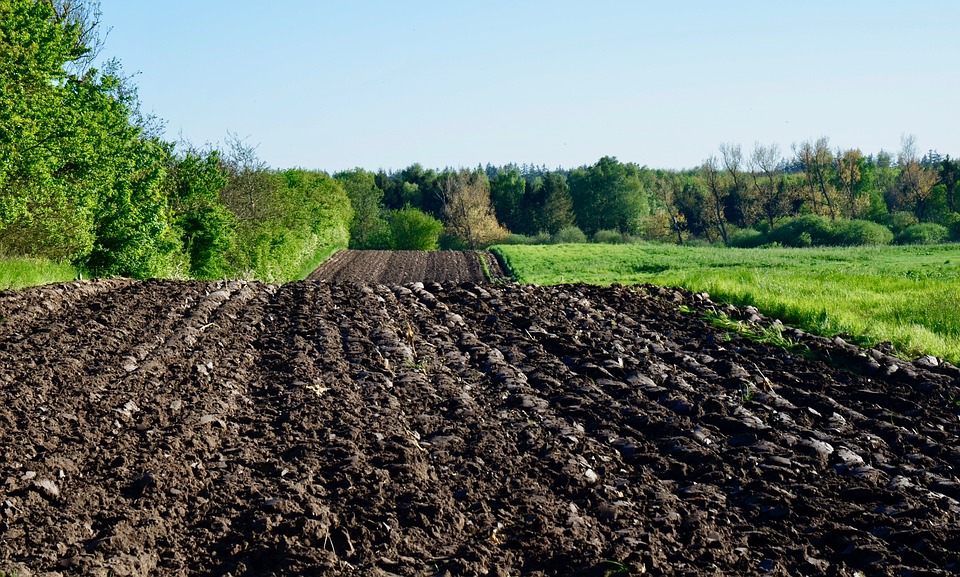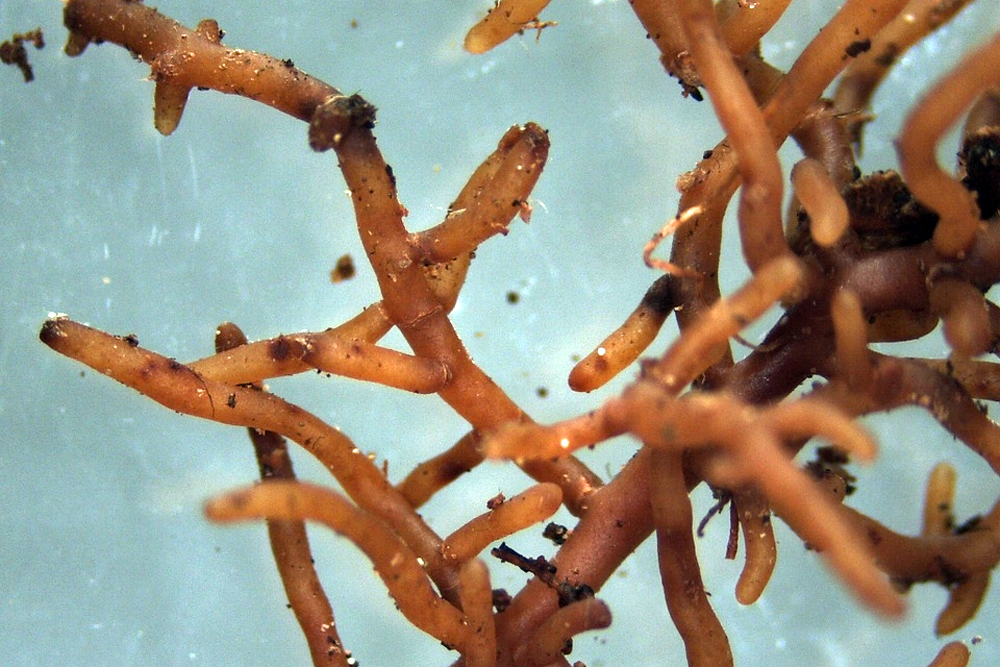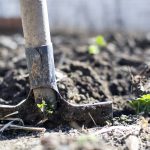We use cookies to make your experience better. To comply with the new e-Privacy directive, we need to ask for your consent to set the cookies. Learn more.
Love your soil - Learn about soil conditioners

Love your soil - Learn about soil conditioners
The condition of a soil will greatly impact how efficiently nutrients are taken up by plants. Most soils can be improved both in nutrient content and in structure by following good gardening practices. Soil that is in good shape will be free-draining, easy to dig, have a crumbly texture and a healthy earthworm population.
How to Improve the Condition of Your Soil
Add Organic Matter: Incorporating organic matter into your soil is one of the best ways to improve its structure and fertility. Organic matter includes compost, manure, leaf mould, and other decomposed plant material. These additions help improve soil structure, retain moisture, and provide essential nutrients for plant growth.
Mulch: Mulching your soil with materials like straw, wood chips, or shredded leaves helps retain moisture, suppress weeds, and regulate soil temperature. As mulch breaks down, it also adds organic matter to the soil.
Practice Crop Rotation: Rotating crops helps prevent nutrient depletion and soil-borne diseases. Different plants have varying nutrient needs, so rotating crops can help maintain soil fertility over time.
Avoid Compaction: Avoid walking or driving over garden beds, as this can compact the soil, reducing air and water infiltration. Compacted soil restricts root growth and drainage.
Incorporate Cover Crops: Cover crops, such as clover or vetch, can improve soil health by adding organic matter, fixing nitrogen, and preventing erosion. These crops are typically planted during fallow periods to cover and protect the soil.
Use Slow Release Fertilisers - The microbes in the soil slowly break down the fertiliser to release the nutrients so plants get a more balanced and continuous supply. The organic principle is to ‘feed the soil to feed the plant’.
Minimising Soil Disturbance: Reduce or eliminate tillage to maintain soil structure. Tilling disrupts soil structure and can lead to erosion and loss of organic matter. No-till gardening involves minimal disturbance of the soil, preserving its structure and microbial communities.
Apply Lime or Sulphur: If your soil pH is too acidic or alkaline, you can adjust it by adding lime (to raise pH) or sulphur (to lower pH). Proper pH levels are crucial for nutrient availability to plants.
Monitor and Adjust: Regularly monitor your soil's health by observing plant growth, conducting soil tests, and paying attention to changes in soil texture and structure. Adjust your soil management practices accordingly to maintain optimal conditions for plant growth.
What is a Soil Conditioner?
A soil conditioner, or soil amendment, is a substance or material added to soil to improve its physical properties and fertility, enhancing plant growth and health. These substances can be organic or inorganic and are used to amend soil that is lacking in certain nutrients, has poor structure, or is otherwise unsuitable for optimal plant growth.
Organic soil conditioners include materials like compost, manure, seaweed, leaf mould and soil inocculants. These substances improve soil structure by increasing its ability to retain moisture and nutrients, while also promoting beneficial microbial activity.
Inorganic soil conditioners, such as gypsum, lime, and vermiculite, can alter soil pH, improve drainage, and enhance nutrient availability for plants. They can also help to break up compacted soils, allowing roots to penetrate more easily.
Seaweed is an important soil improver rich in minerals and trace elements. It contains almost every micro-nutrient in a fully chelated (immediately available) form. It is also full of carbohydrates, which plants use as a building block. Seaweed has 60 trace minerals and ready-to-use nutrients including nitrogen, potassium, phosphate, calcium, boron, potash and magnesium. Regular dressings stimulate microbial activity, improving soil structure and fertility. Seaweed dust should be worked into the soil before planting, used as a top dressing or added to the compost. Available in 4kg and 25kg bags.
Soil additive made of basalt rock dust. Has a high content of readily metabolizable silica and lime which are necessary for the maintenance of soil fertility and avoidance of micro-nutrient deficiency. Plants benefit in many ways from adding silica to the soil. These benefits include greater tolerance of environmental stresses, such as heat, cold, drought, salt buildup, mineral toxicity or deficiency. Plants also experience accelerated growth rates, and improved resistance to insects and fungal diseases. Silica is an essential building block for the structure of your plants. Available in 4kg or 20kg bags.
Soil improver with a high content of easily convertible silicic acid and other minerals that are essential for maintaining soil fertility and preventing trace nutrient deficiencies. Stores water and nutrients then releases thme slowly to the plants. Particularly suitable for improving the binding and nutrient availability of lighter, more permeable soils. Excellent for adding to soils used in container growing. Available in 4kg and 15kg bags
Lime
Loosens heavy soils and makes them easier to work. With the right lime content in the soil, the other nutrients become fully effective because water, air and heat circulation are optimal.
Granulated Lime - The fastest acting lime and will give a near immediate increase in your soil's pH. Reaching a desirable soil pH through liming will make locked nutrients more available to the plant for uptake.
Dolomite lime - or magnesium lime is manufactured by crushing dolomite limestone down to very small pieces. Dolomite lime works to increase the Ph levels of acidic soil. As well as calcium carbonate, dolomite lime also contains magnesium carbonate. Magnesium deficient plants are often yellower, have shorter root systems, and produce noticeably lower yields than plants grown in healthy soil. Available in 4kg and 25kg bags.
Garden lime – Calcitic Lime for mild pH adjustment, soil loosening and soil structure improvement. Neutralizes build up of acids in soil. Activates soil life and eliminates soil exhaustion. Will increase the activity of micro-organisms in the soil and consequently improve fertility. Available in 4kg and 20kg bags.
Sulphur is an essential plant nutrient necessary for plant growth and improves the use efficiency of other essential plant nutrients, particularly nitrogen and phosphorus. Lowers pH in alkaline soils. Also useful as a soil amendment around acid loving plants such as blueberries, azaleas and rhododendrons. Available in 4kg and 20kg bags.
Biochar
Biochar is carbon rich, extremely long lasting and porous - making it a great support for microbial life in the soil.
Nature's Organic Choice Biochar is made from the aerobic composting of biochar with poultry manure through an in-vessel composting system. This process produces compost with a net-zero emissions of greenhouse gases to the atmosphere. The resulting biochar is nutrient enriched which insures there will be no deficit of nitrogen in the soil which can happen when using non enriched biochar.
Mycorrhiza
Mycorrhizae are nature's stress managers; plants with mycorrhizae are more resistant to drought, severe temperature variations, pH changes, toxic metals and soil compacting. Mycorrhizae also ensure better soil structure due to their contribution to forming ‘soil aggregates’.
Since fungal threads can grow many metres from the roots and are microscopically thin, they end up in places where roots can never reach. This makes the extended root system hundreds of times greater than for plants that must make do without these auxiliaries, making it much easier for them to absorb water and nutrients. Mycorrhiza fungi take care of the living interface between the absorbing root system and the soil biology. An ample number of scientific studies show that the presence of useful mycorrhiza fungi noticeably improves plant health. They can also make do with less fertiliser. In addition, organic fertilisers are utilised better. The mycorrhizae thereby support plant resistance; they improve growth and the crop produces more fruit of better quality.
We stock Mycorrizae soil conditioners which contain a mix of specially selected microbes to boost plant health.
We have 3 types available; Mycorrhiza for Propagation and Nurseries, Mycorrhiza Pellets for Agriculture and Horticulture and Mycorrhiza Concentrate for Agriculture.

It is also a good idea to get a soil test done so you know what conditions you are trying to correct.

